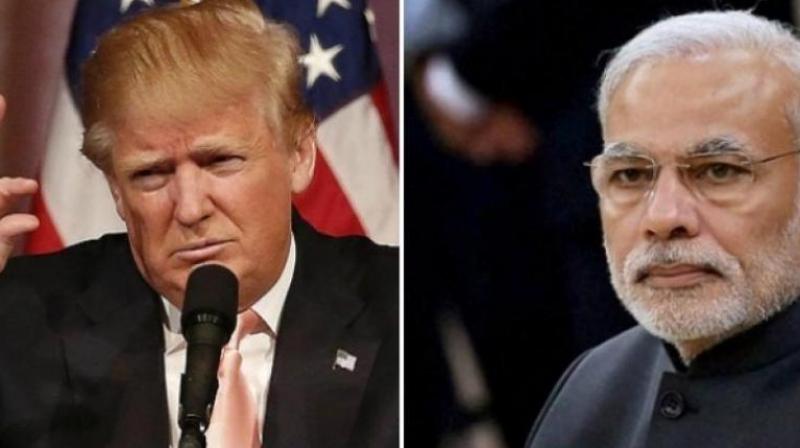Visa changes could stunt budding US-India ties under Trump
The IT sector is vital for India's economy and creating jobs for a fast-growing, young workforce, a top priority for Narendra Modi.

Washington: The US and India seem like a natural fit in the Trump era: rambunctious democracies, led by populists, focused on economic growth and fighting radical Islam. It's a budding partnership that could be set back by a nuts-and-bolts dispute over employment visas.
As President Donald Trump looks to help American workers, his administration is considering a broad review of a visa programme used heavily by India's massive technology and outsourcing industries to send programmers and other computer specialists to the United States.
Speculation about tougher rules on so-called H-1B visas sent tech stocks tumbling in India last week, and compounded concerns about the protectionist direction of US policy after Trump temporarily suspended immigration from seven Muslim-majority countries.
The technology sector is vital for India's economy and creating jobs for a fast-growing, young workforce, a top priority for Prime Minister Narendra Modi.
America is the main customer: It accounted for more than 60 per cent of India's USD 108 billion in foreign tech and outsourcing sales last year, according to the National
Association of Software and Service Companies, an Indian industry lobby group.
"There is a general sense of anxiety in the industry," said Dipen Shah, an IT analyst at Kotak Securities in India.
He said it seemed likely that the cost of hiring people on H-1B visas would increase, hurting tech companies' bottom lines.
A draft executive order prepared by Trump's team is short on specifics. It calls for a report within nine months on the injury caused to US workers by several working visa categories, including H-1B, and a re-consideration of how to allocate the visas to ensure they go to "the best and the brightest."
The US government grants up to 85,000 of these visas each year. They're open to a broad range of occupations and recipients who can stay in the country for up to six years. First Lady Melania Trump, who comes from Slovenia, had one as a fashion model in the 1990s.
The top occupations, however, are tech-related and about 70 per cent of the recipients are Indian.
Critics say the programme is abused, with many companies contracting out jobs to consulting firms that bring in lower-paid workers from overseas. Employees on H-1B visas are unable to change employers.
Critics say that leaves them with little leverage to negotiate their salaries. Trump's nominee for attorney general, Senator Jeff Sessions, has long opposed the programme, and there's bipartisan congressional support for reform.
Advocates say the visa programme allows companies to fill skills shortages and encourages students with hi-tech degrees to stay in the US and set up companies of their own.
Vinson Palathingal, who runs a mid-sized, US-based IT consulting company, said the administration's priority should be training American workers to address skills shortages, and developing a quicker path to permanent residency for Indian talent.
Without those steps, he said, restricting H-1B visas would mean tech jobs leaving the US. India's government wants more of the visas to be issued, not less.
After visa fees were hiked in late 2015, India challenged the US at the World Trade Organization, a rare instance in which one WTO member contended that another's immigration laws violated international trade rules.
"Limitations on this visa are sure to cause of a lot concern in Delhi and that will be conveyed in fairly strong terms to Washington," said Rick Rossow, an India specialist at the Center for Strategic and International Studies.
"The question is how much is the Indian government willing to put on the table to represent corporate interests in its discussions with the US," said Bharath Gopalaswamy, director of the South Asia programme at the Atlantic Council, another Washington-based think tank. "I don't think they will bet all their chips on this."
Over the past decade, India shifted from a Cold War-era foreign policy of non-alignment to become more comfortable as Washington's partner. Its military, long reliant on Russian weaponry, is being modernised with US help. Modi has called the US an "indispensable partner."
India hopes Trump's vow to take a harder line on Islamic extremism will mean a tougher stance on Pakistan over militants that India blames for launching attacks on its territory.
It also shares Washington's concern about a rising China and would favour an effort by Trump to improve ties with Russia. But economic interests are paramount.

